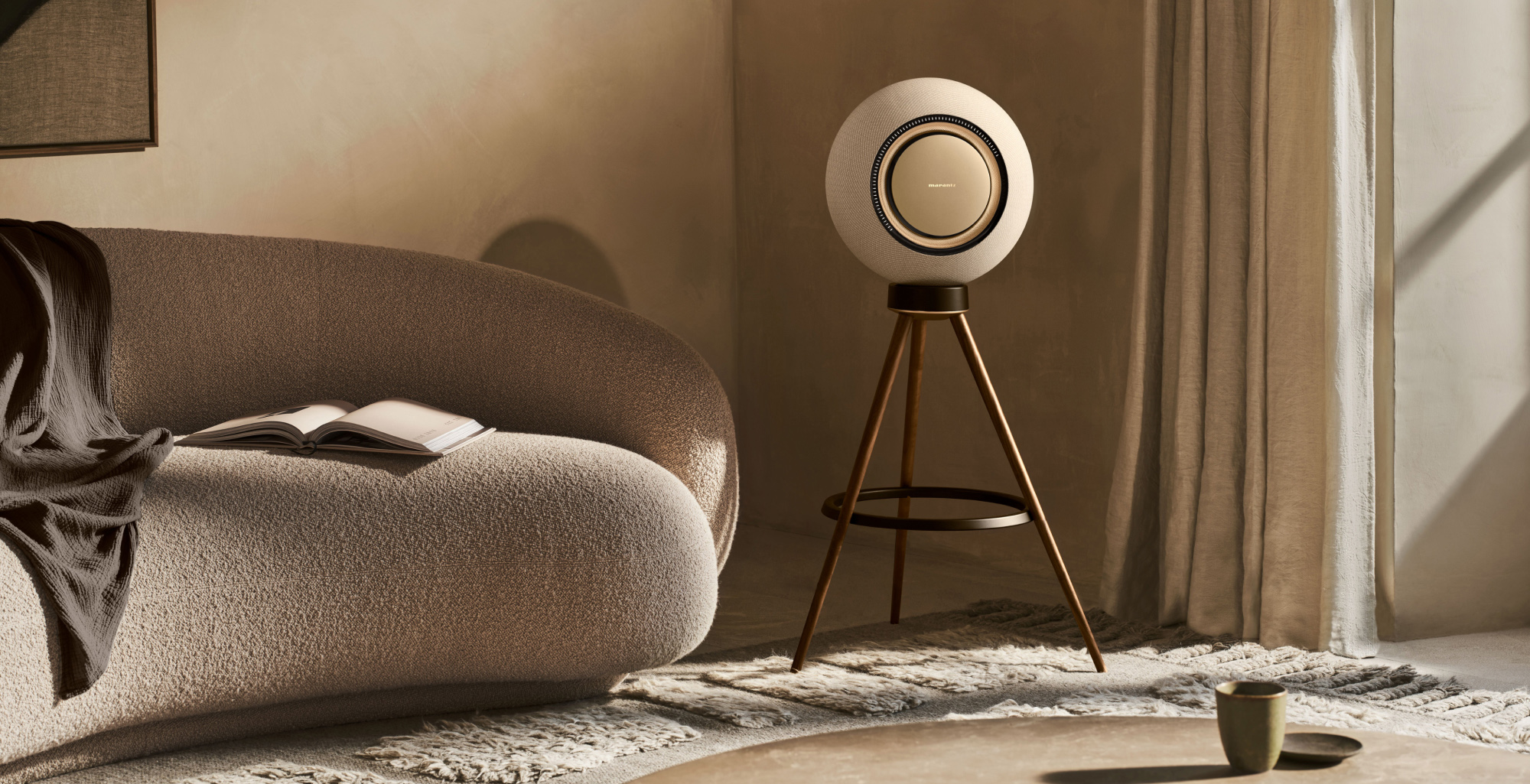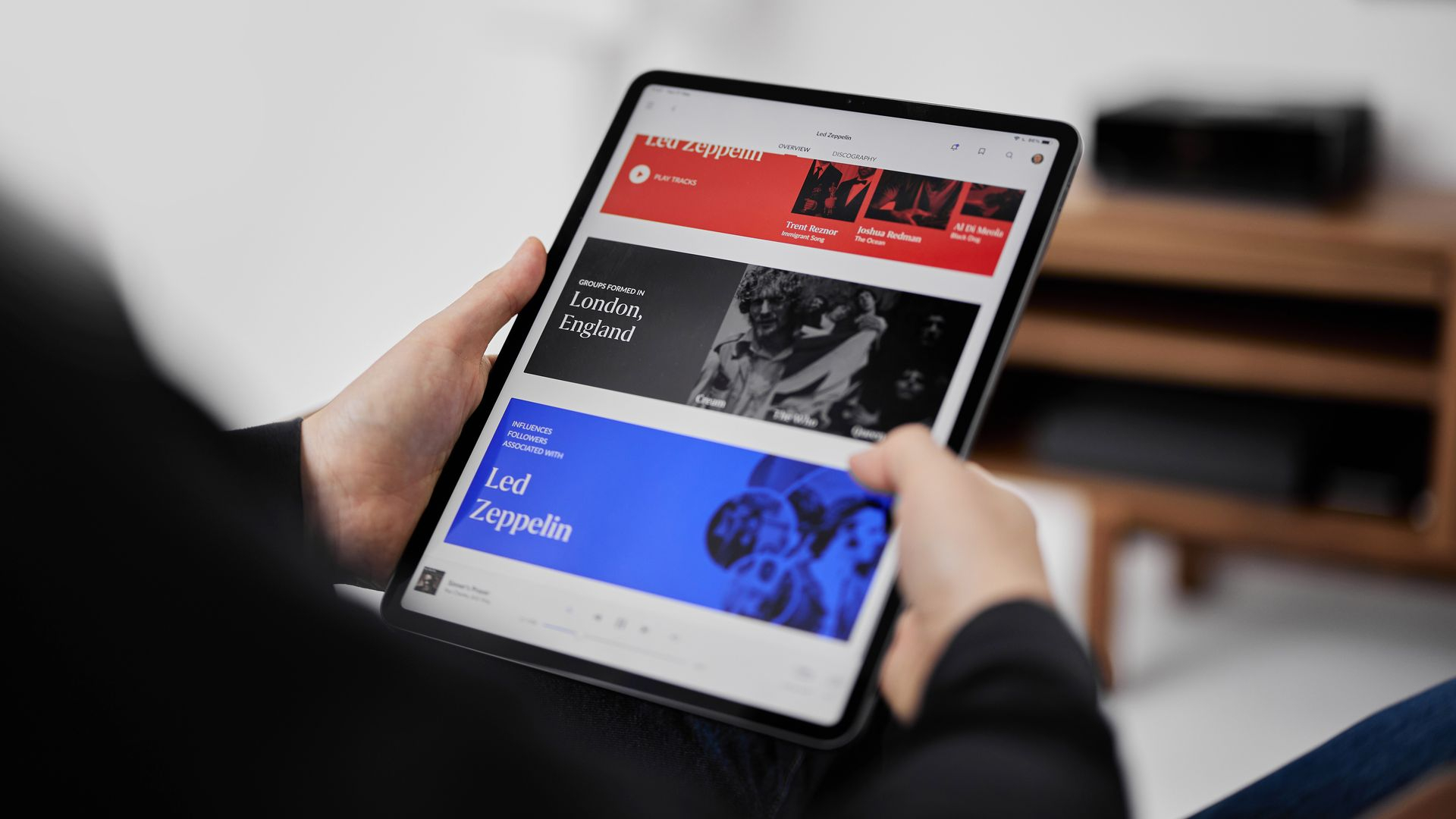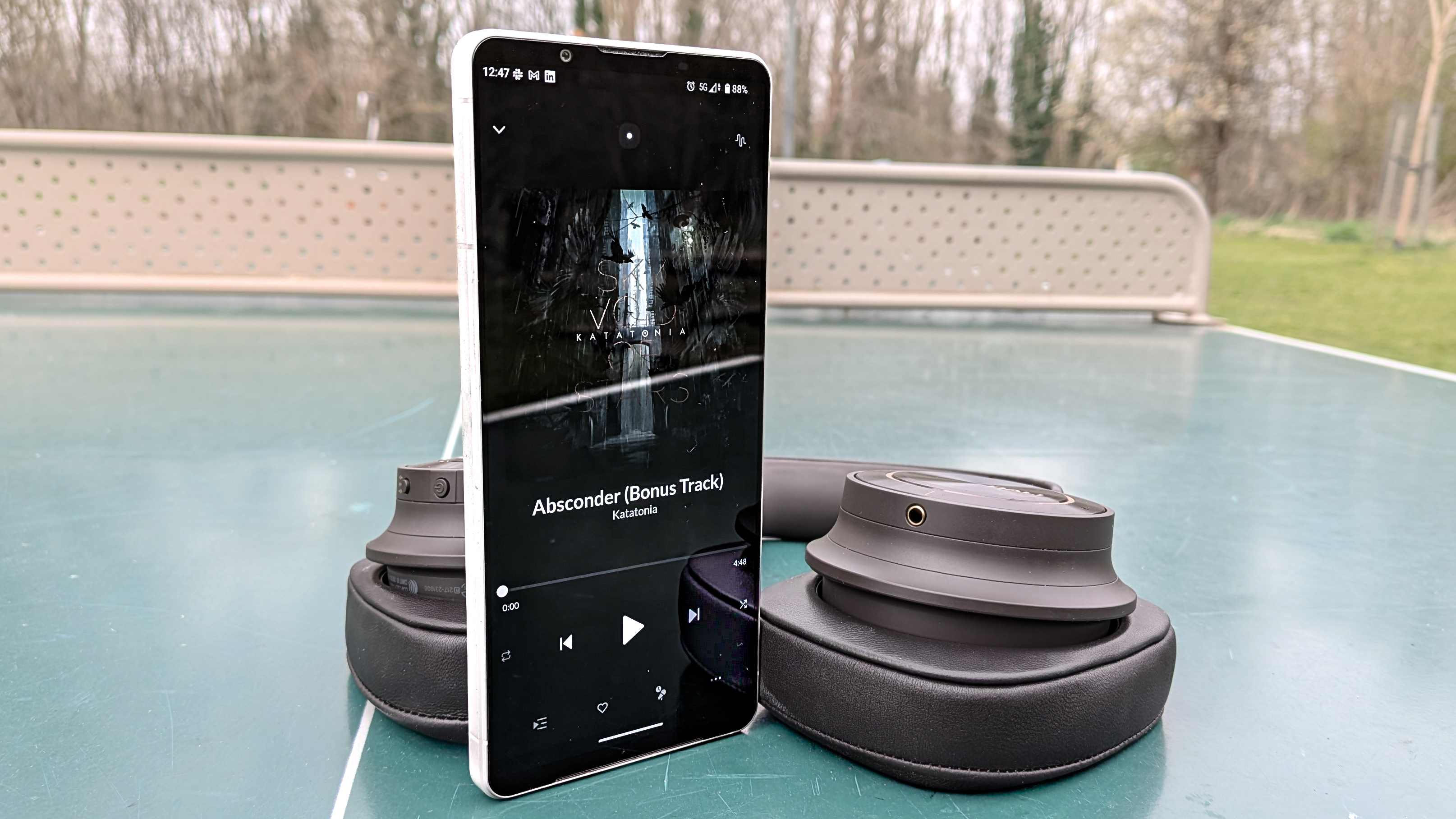My house is filled with music thanks to this smart home audio system — but it's not Sonos
Sweet, sweet smart tunes

Here at Tom’s Guide our expert editors are committed to bringing you the best news, reviews and guides to help you stay informed and ahead of the curve!
You are now subscribed
Your newsletter sign-up was successful
Want to add more newsletters?

Daily (Mon-Sun)
Tom's Guide Daily
Sign up to get the latest updates on all of your favorite content! From cutting-edge tech news and the hottest streaming buzz to unbeatable deals on the best products and in-depth reviews, we’ve got you covered.

Weekly on Thursday
Tom's AI Guide
Be AI savvy with your weekly newsletter summing up all the biggest AI news you need to know. Plus, analysis from our AI editor and tips on how to use the latest AI tools!

Weekly on Friday
Tom's iGuide
Unlock the vast world of Apple news straight to your inbox. With coverage on everything from exciting product launches to essential software updates, this is your go-to source for the latest updates on all the best Apple content.

Weekly on Monday
Tom's Streaming Guide
Our weekly newsletter is expertly crafted to immerse you in the world of streaming. Stay updated on the latest releases and our top recommendations across your favorite streaming platforms.
Join the club
Get full access to premium articles, exclusive features and a growing list of member rewards.
Want to listen to your music wherever you are in your home? There are a couple of solutions. You could have one, big speaker in one room and pump the volume as loud as you possibly can. That's a bad idea. Or, you could hang one of the best Bluetooth speakers from your belt, and wander around the house listening to tinny tunes. This is also a bad idea.
So what is a good idea? One of the best smart speakers is a start. You'll get better sound thanks to the Wi-Fi connection and generally higher quality audio internals. You'll also get voice control and other smart features, like simple audio streaming from your phone to the speakers. One of the most common manufacturers of smart speakers is Sonos — and they're very good.
But I don't use Sonos — or at least, not Sonos's whole home solution. Mine is a mad Frankenstein that's made up of a couple of different systems, built around some of my favorite devices. Here's how it works.
Roon is not cheap. But there are so many benefits for audiophiles that it's worth the outlay. Extensive EQ options, specialized audio streaming settings and crossfeed options for headphones, alongside the music server portion. It's not for everyone, but it's a spectacular piece of software for audio enthusiasts.
If you have a large, multi-room house, you need a different audio device in each to be able to hear your music wherever you might find yourself.
If you're like me, you'll want to use different speakers in each room that serve a slightly different purpose but can, should I need them to, all play the same music simultaneously. Or, if I'm sharing my space with someone, each speaker can play something different, but still be controlled by a single app.
That's where Roon comes in.

I've written about Roon before. It's a kind of all-in-one music streaming service, bringing together all your smart speakers and streaming devices so that you can stream music from both a home music server and services like Tidal and Qobuz. I've now been using it for the better part of six months, and it's completely changed the way my music listening at home works.
Get instant access to breaking news, the hottest reviews, great deals and helpful tips.
Say, for example, that I want to listen to Cannibal Corpse in the living room, while someone else listens to some garbage some pop music in the kitchen, I can use the Roon app to choose one of the living room speakers. Their music won't get stopped, and we can even listen to the same source service.
Even better, I have a music server built into Roon. See, I have a device called a Roon Nucleus One, which has a hard drive filled with my music collection so that I can listen to music at a much higher quality than you'd find on a streaming service. It also means I can listen to tunes you simply won't find on anything, be that Spotify, Tidal, or Qobuz. The music of Wendy Carlos is simply impossible to find, for example, unless you have her full CD back catalog ripped onto your hard drive. Like me.
It's easy enough to use. Plug in the Roon Nucleus One server, create an account, and log in with the Roon app. Then you can add all your streaming services, connect your devices (which are listed the moment you connect Roon to the WiFi — chef's kiss,) and you're off.
Any drawbacks?

So Roon itself doesn't have any kind of voice control support, which for some is going to be a contentious problem. I'm not bothered at all, given I only use voice controls to create timers in the kitchen (which still works with our kitchen HomePod), but some potential users aren't going to like that they can't ask the system to play music without pulling out their iPad or phone.
The Roon Nucleus One costs $499, and the monthly subscription costs even more — $14.99 per month.
It's also expensive. The Roon Nucleus One costs $499, and the monthly subscription costs even more — $14.99 per month. That's not a small amount of money by any stretch of the imagination, especially considering the free alternatives you can use. Wiim's smart service is good, and Sonos' streaming service costs nothing.
But I don't think I can see any drawbacks to my personal use case for Roon. It works flawlessly and gives me everything that I could want out of a smart audio solution. For audiophiles, there's little more you could want.
Follow Tom's Guide on Google News and add us as a preferred source to get our up-to-date news, analysis, and reviews in your feeds. Make sure to click the Follow button!
More from Tom's Guide

Tammy and her generous collection of headphones have found a new home — Tom's Guide! After a two-and-a-half-year stint as iMore's resident audiophile, Tammy's reviews and buying guide expertise have more focus than ever on Tom's Guide, helping buyers find the audio gear that works best for them. Tammy has worked with some of the most desirable audio brands on the planet in her time writing about headphones, speakers, and more, bringing a consumer focussed approach to critique and buying advice. Away from her desk, you'll probably find her in the countryside writing (extremely bad) poetry, or putting her screenwriting Masters to good use creating screenplays that'll never see the light of day.
You must confirm your public display name before commenting
Please logout and then login again, you will then be prompted to enter your display name.
 Club Benefits
Club Benefits











